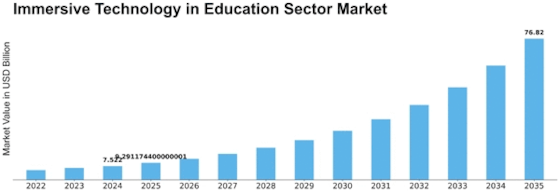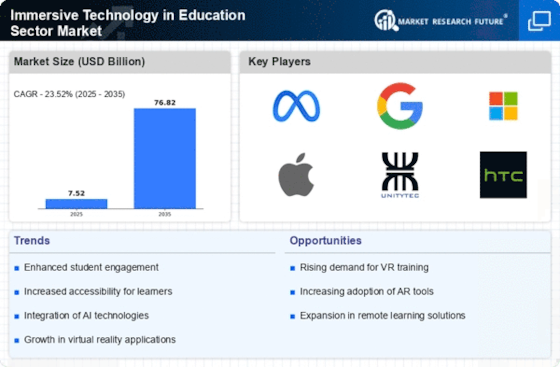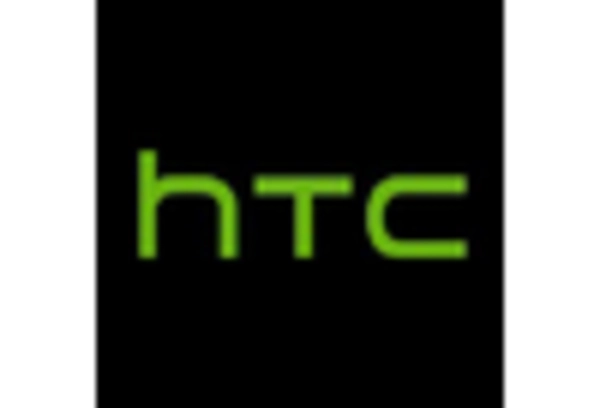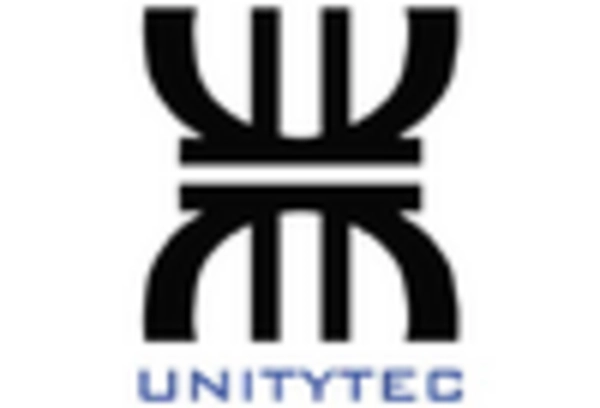Immersive Technology In Education Sector Size
Immersive Technology in Education Sector Market Growth Projections and Opportunities
Immersive technology in education is changing as schools use new tools to improve learning. Immersive technologies—VR, AR, and MR—are leading these dynamics. These technologies provide immersive and interactive learning environments that engage and affect students. The growing realization of immersive technology' ability to improve educational results and meet varied learning styles drives market dynamics. These tools help visual, auditory, and kinesthetic learners grasp complicated subjects by providing a more immersive and hands-on learning experience.
Demand for experiential learning shapes market dynamics. Immersive technologies let students explore virtual worlds, perform virtual experiments, and simulate real-world circumstances. Beyond typical classroom approaches, this hands-on learning approach lets students apply concepts from theory in practice. Immersive technology makes learning more interesting, memorable, and relevant, from historical reenactments to virtual field excursions.
Increased cost and accessibility of immersive gadgets is another key market factor. As VR headsets, AR-enabled smartphones, and other immersive technology products get cheaper, educational institutions are adopting them. The accessibility of immersive technology allows both conventional and remote learning to bridge geographical divides and provide students equitable access to immersive educational experiences. This accessibility of immersive technology drives educational industry growth.
Growing interest in virtual classrooms and remote learning solutions also affects market dynamics. Virtual and blended learning models increased due to the COVID-19 epidemic, driving educational institutions to seek immersive technologies to recreate the interactive classroom experience online. Immersive technology allows students and instructors to communicate and collaborate in a virtual area, solving distance learning problems.
Gamification in educational material drives market dynamics. Immersive technology let teachers gamify classes, making learning fun and engaging. Simulations, instructional games, and virtual scenarios motivate, engage, and retain students. Gamification makes studying more fun and encourages student competition and collaboration, improving student engagement.




















Leave a Comment